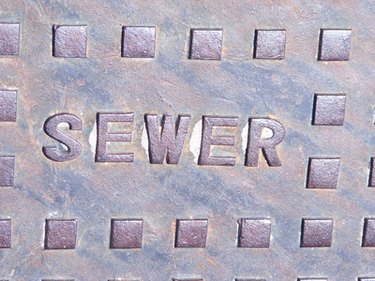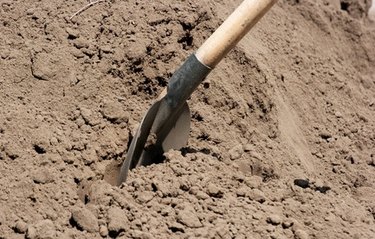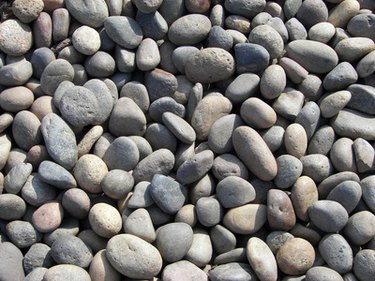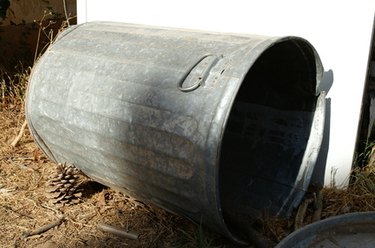Things You'll Need
Shovel
Galvanized garbage can with lid, large
Drill
1/2 in. drill bit or hole bit
Saw for cutting metal
Rocks
Enzymes
Garden edging
Mallet (optional)

A septic system is the most effective method in disposing of dog waste. Except for a bit of planning and some heavy digging, it's a fairly simple process. For the septic to work properly, your soil should be sandy or loamy, not clay-like for proper drainage. You can easily fix some issues, but in certain cases you shouldn't build a septic system in your yard. If you are unsure, consult a professional before digging a dog waste septic system; you don't want to cause an hazardous situation. Locate your septic system away from any food gardens.
Step 1

Dig a hole in an isolated part of the yard. The hole should be about 2 ft. deeper than the height of the garbage can, and about a foot wider than the can.
Video of the Day
Step 2

Fill the bottom of the hole with about 12 to 18 inches of rocks. The number of rocks you need will depend on the size of the rocks.
Step 3

Drill half-inch-holes in the sides of the garbage can and cut out the bottom of the can. You'll need about three rows of half inch holes that go all the way around the can.
Step 4
Insert the garbage can into the hole in the ground with the cut bottom pointing down. Leave about two inches of the can above ground.
Step 5
Fill the dirt back in all around the sides of the can, along with some more rocks, and press it down. Place the lid on the can. You can also add hay and newspaper along the sides.
Step 6
Dump the scooped waste into the can daily; add water.
Step 7
Add enzymes about once a week to aid in the composting process. You can find enzyme packets in a hardware or home improvement store.
Step 8
Clean out the septic can about once a year, or less often, depending on the number of dogs and their size. The entire system should last at least 10 years when used for family dogs. Used for a kennel, it may need changing more often. When you clean out the can, do not put the compost into or near a food garden, as the liquefied compost seeps out into the soil from the holes in the can. If it contaminants food it can cause severe health complications.
Video of the Day